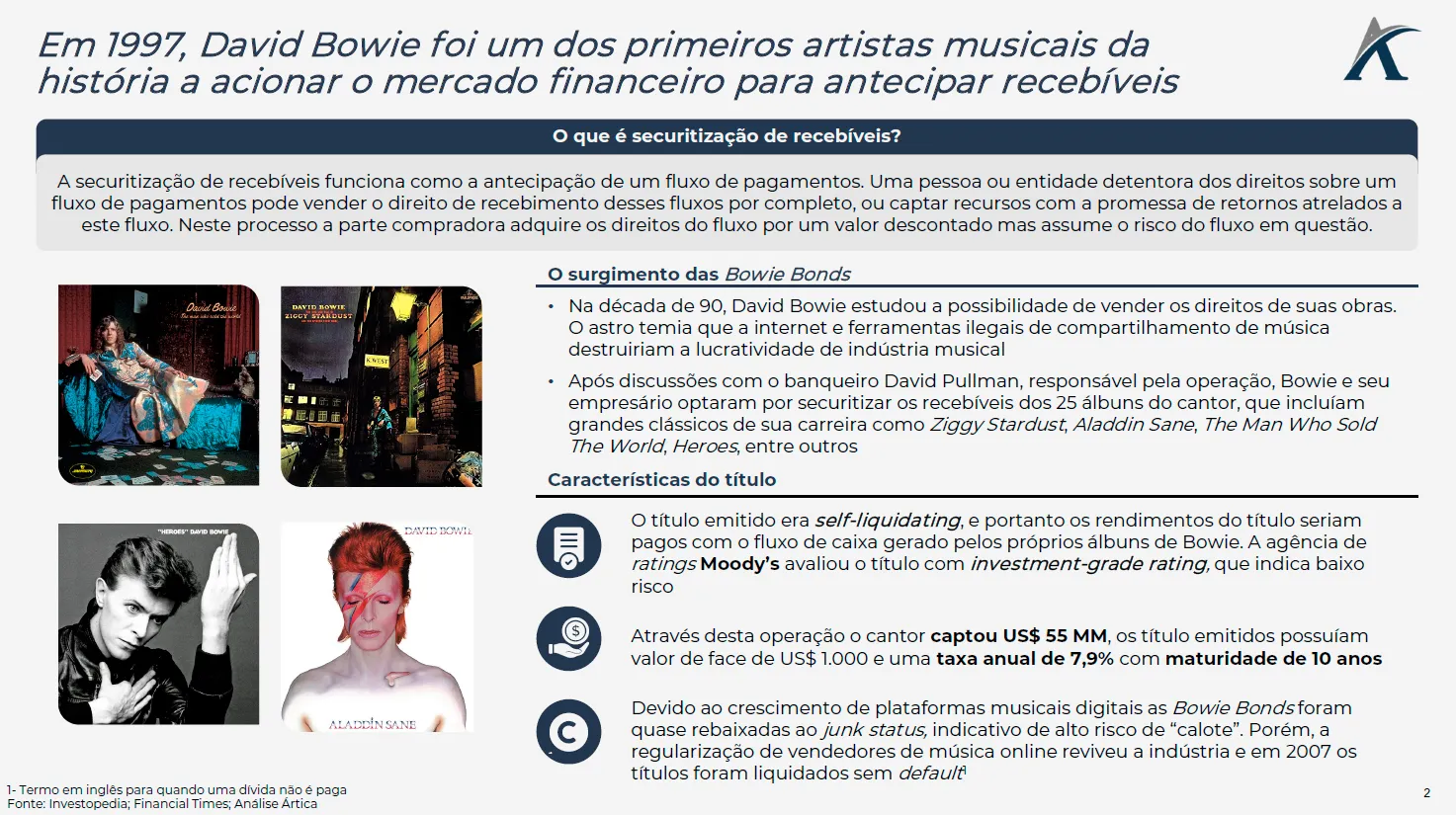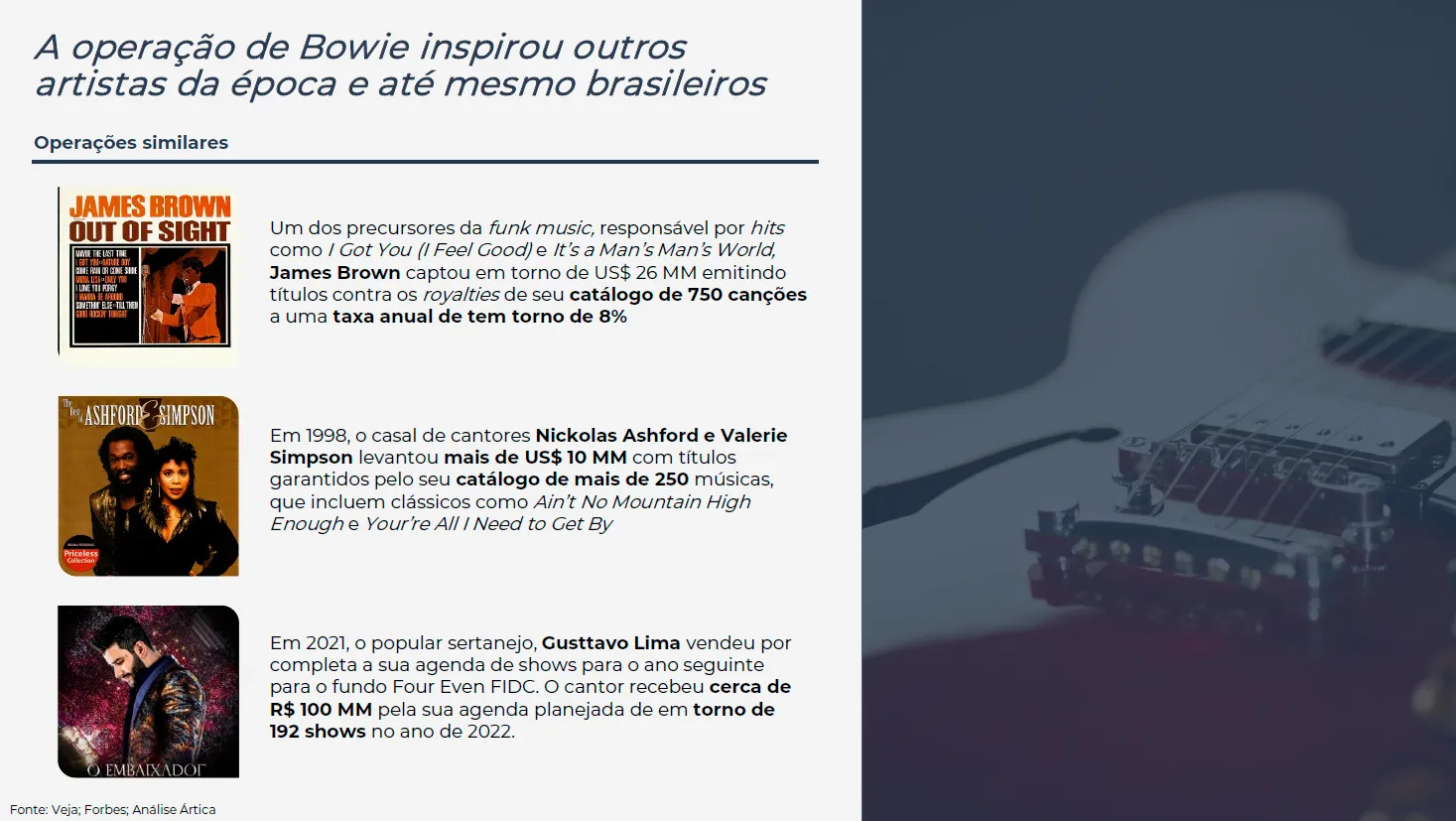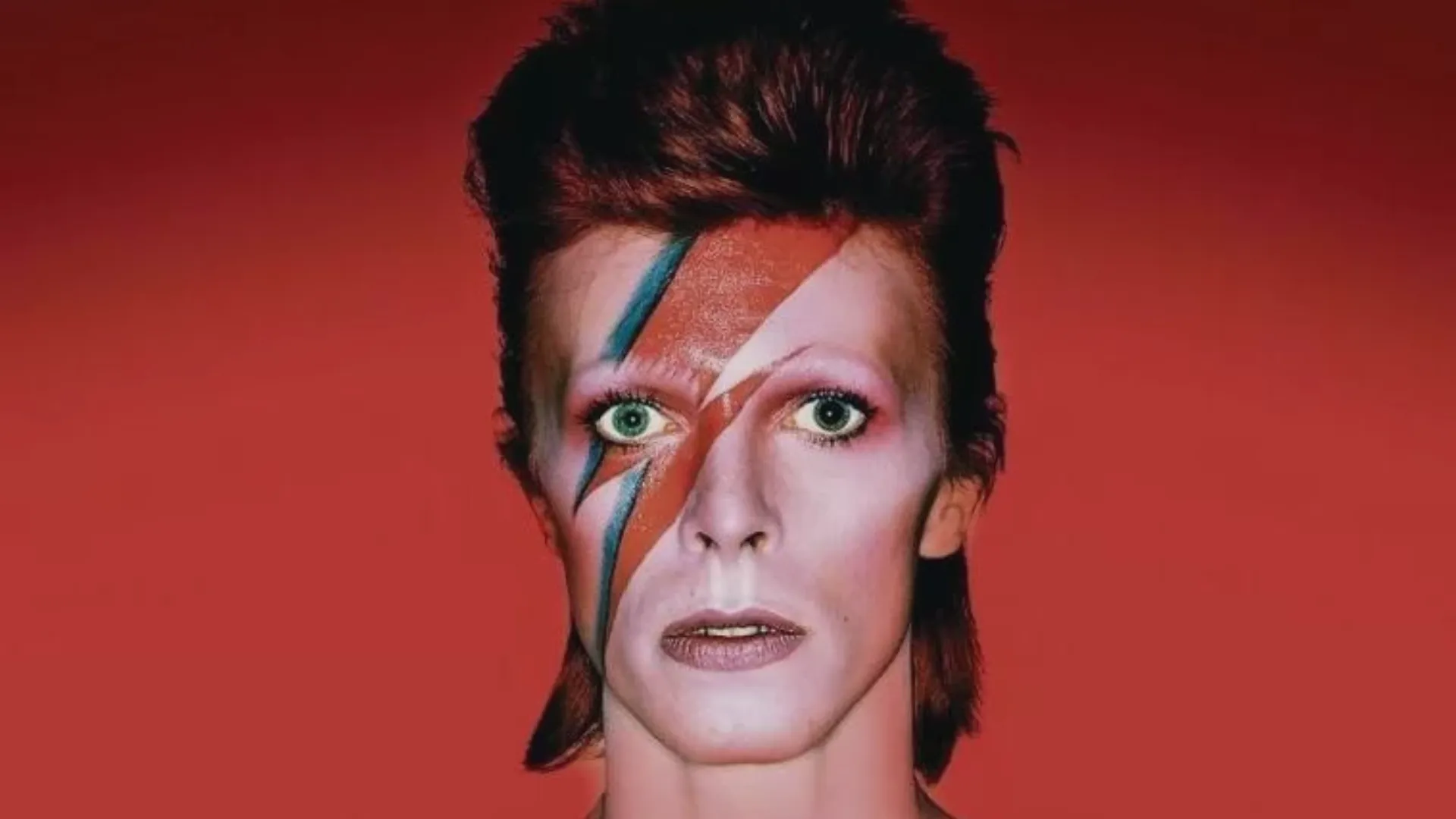Receivables securitization is a widely used instrument in the financial market to anticipate the receipt of cash flows. To anticipate the receipt of this flow, the rights holder approaches investors to sell the rights at a discounted price or raise funds by tying the payment of their funds to the cash flow. In both cases, the discount rate is linked to credit risk.
In 1997, David Bowie was one of the first people to advance receivables tied to intellectual property, which in this case was the artist's own work. The singer raised the equivalent of U$ 55 million, which, adjusted for inflation, would be equivalent to approximately U$ 102 million today. His operation served as an example for other artists, including Brazilians, to come.







